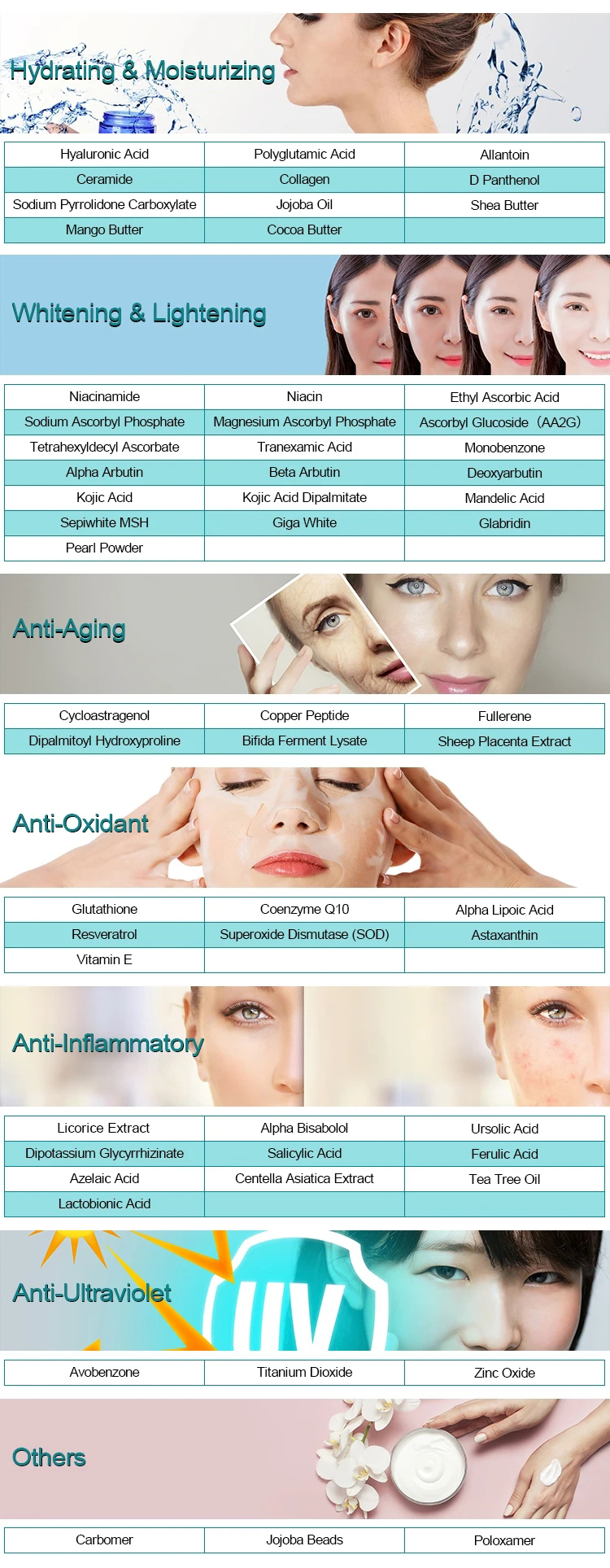Tetrahexyldecyl Ascorbate is a stable form of Vitamin C that is commonly used in skincare products due to its ability to penetrate the skin easily. It is known for its antioxidant properties and its potential to brighten and even out the skin tone.
In terms of quality and production, the manufacturing process is crucial to ensure the stability and efficacy of Tetrahexyldecyl Ascorbate. The production involves chemical synthesis, and manufacturers follow specific guidelines to maintain quality standards. Quality control measures are implemented to check for purity, stability, and consistency in the final product.
It’s important for skincare product manufacturers to adhere to good manufacturing practices (GMP) and quality assurance protocols to ensure the Tetrahexyldecyl Ascorbate used in their formulations meets the desired specifications. Additionally, the choice of other ingredients in the skincare product can also impact its overall quality and effectiveness.

If you have specific concerns about a product containing Tetrahexyldecyl Ascorbate, it’s advisable to check the product’s label for information on the source, concentration, and any additional ingredients used. Manufacturers often provide details about the formulation to help consumers make informed decisions about skincare products.
Potential Benefits of Tetrahexyldecyl Ascorbate
Tetrahexyldecyl Ascorbate is a stable and oil-soluble form of Vitamin C, commonly used in skincare products. While individual responses may vary, here are some potential benefits associated with Tetrahexyldecyl Ascorbate:
Antioxidant Protection: Like other forms of Vitamin C, Tetrahexyldecyl Ascorbate is known for its antioxidant properties. It helps protect the skin from free radical damage caused by environmental stressors such as UV radiation and pollution.
Collagen Synthesis: Vitamin C is essential for the synthesis of collagen, a protein that contributes to skin elasticity and firmness. Tetrahexyldecyl Ascorbate may support collagen production, aiding in maintaining skin structure.
Brightening Effects: Regular use of Tetrahexyldecyl Ascorbate may help reduce the appearance of dark spots and uneven skin tone. It inhibits melanin production, leading to a brighter complexion.
Anti-Aging: The antioxidant properties of Tetrahexyldecyl Ascorbate can help combat signs of aging by reducing oxidative stress and supporting the skin’s natural repair processes.

Stability: Unlike some other forms of Vitamin C, Tetrahexyldecyl Ascorbate is stable in formulations, making it less prone to oxidation and degradation. This stability ensures a longer shelf life for skincare products.
Oil-Solubility: Tetrahexyldecyl Ascorbate’s oil-soluble nature allows it to penetrate the skin more effectively than water-soluble forms of Vitamin C. This enhances its absorption and bioavailability.
Gentleness: Some individuals with sensitive skin may find Tetrahexyldecyl Ascorbate to be a gentler option compared to other forms of Vitamin C, which can sometimes cause irritation.
It’s important to note that while Tetrahexyldecyl Ascorbate offers these potential benefits, individual skin types and reactions can vary. It’s advisable to conduct a patch test before incorporating any new skincare ingredient into your routine and consult with a dermatologist for personalized advice.
